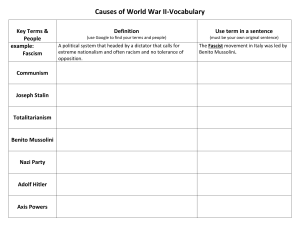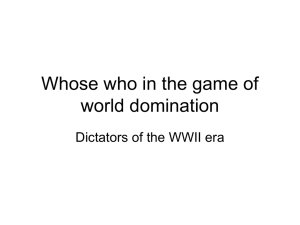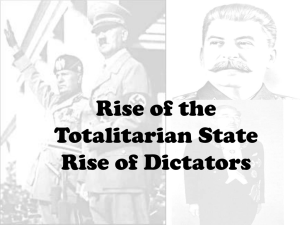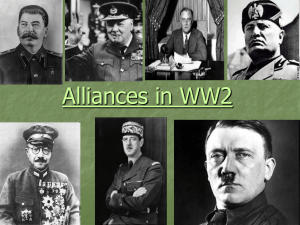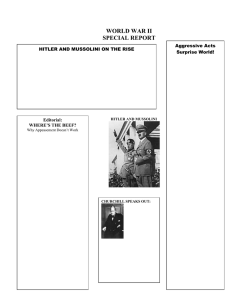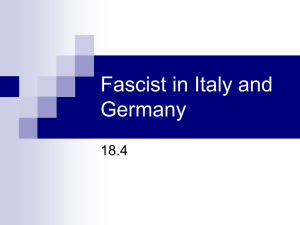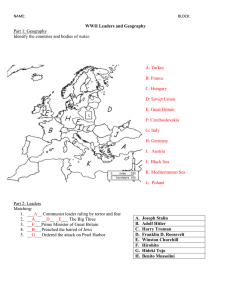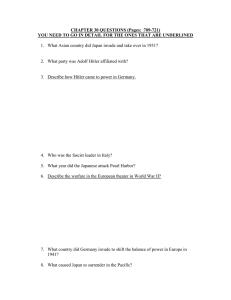NAME __________________________________ DATE_____________________ – USII.6 The Rise of Fascism in Europe
advertisement
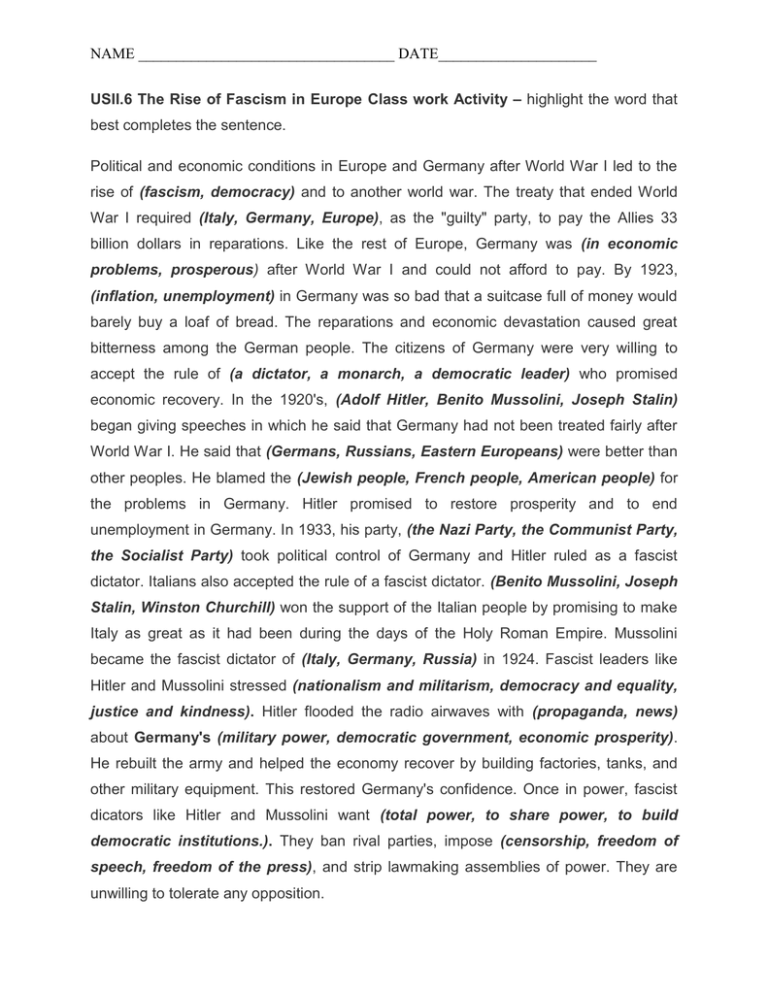
NAME __________________________________ DATE_____________________ USII.6 The Rise of Fascism in Europe Class work Activity – highlight the word that best completes the sentence. Political and economic conditions in Europe and Germany after World War I led to the rise of (fascism, democracy) and to another world war. The treaty that ended World War I required (Italy, Germany, Europe), as the "guilty" party, to pay the Allies 33 billion dollars in reparations. Like the rest of Europe, Germany was (in economic problems, prosperous) after World War I and could not afford to pay. By 1923, (inflation, unemployment) in Germany was so bad that a suitcase full of money would barely buy a loaf of bread. The reparations and economic devastation caused great bitterness among the German people. The citizens of Germany were very willing to accept the rule of (a dictator, a monarch, a democratic leader) who promised economic recovery. In the 1920's, (Adolf Hitler, Benito Mussolini, Joseph Stalin) began giving speeches in which he said that Germany had not been treated fairly after World War I. He said that (Germans, Russians, Eastern Europeans) were better than other peoples. He blamed the (Jewish people, French people, American people) for the problems in Germany. Hitler promised to restore prosperity and to end unemployment in Germany. In 1933, his party, (the Nazi Party, the Communist Party, the Socialist Party) took political control of Germany and Hitler ruled as a fascist dictator. Italians also accepted the rule of a fascist dictator. (Benito Mussolini, Joseph Stalin, Winston Churchill) won the support of the Italian people by promising to make Italy as great as it had been during the days of the Holy Roman Empire. Mussolini became the fascist dictator of (Italy, Germany, Russia) in 1924. Fascist leaders like Hitler and Mussolini stressed (nationalism and militarism, democracy and equality, justice and kindness). Hitler flooded the radio airwaves with (propaganda, news) about Germany's (military power, democratic government, economic prosperity). He rebuilt the army and helped the economy recover by building factories, tanks, and other military equipment. This restored Germany's confidence. Once in power, fascist dicators like Hitler and Mussolini want (total power, to share power, to build democratic institutions.). They ban rival parties, impose (censorship, freedom of speech, freedom of the press), and strip lawmaking assemblies of power. They are unwilling to tolerate any opposition.
